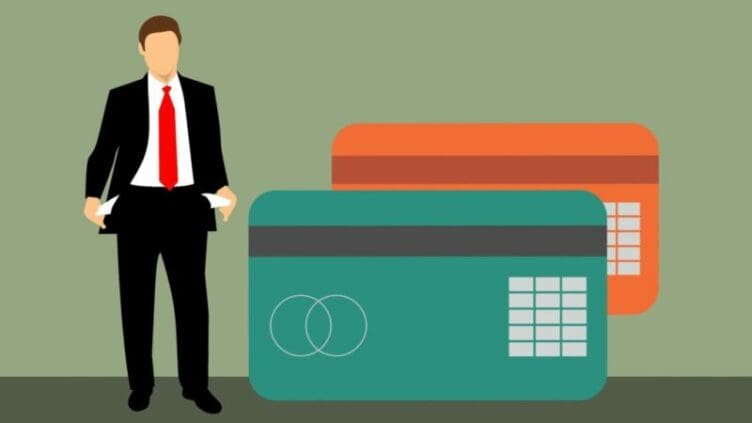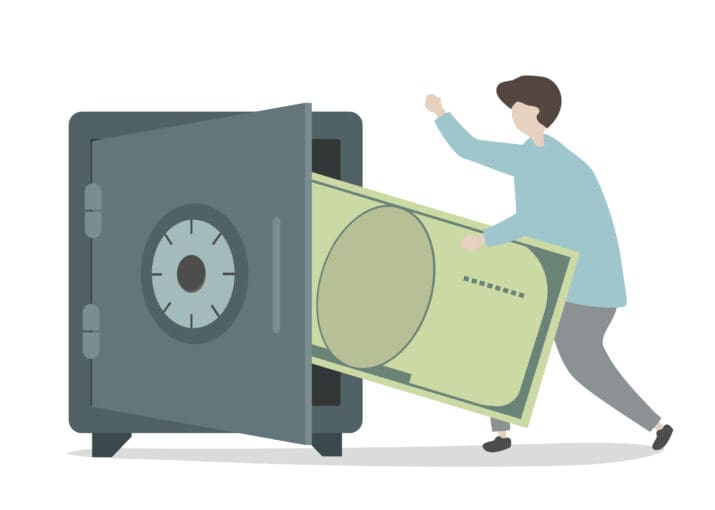Credit cards are often the best payment option over debit cards and Buy Now Pay Later (BNPL) services due to several key advantages. Credit cards offer robust purchase protection against fraud, theft, or damage, which is typically not available with debit cards. They also contribute to building your credit history, which is crucial for securing loans or mortgages in the future. In terms of credit card benefits and rewards, credit cards often provide points, cash back, or other perks that can add significant value over time.
When compared to BNPL services, credit cards often have lower interest rates, especially if you pay your balance in full each month. They also offer more flexibility in payments and can positively impact your credit score when used responsibly. However, it’s important to remember that credit cards should be used wisely to avoid the potential pitfalls of high interest and accumulating debt.
Advantages of Credit Cards Over Debit Cards
Purchase Protection
Credit card purchase protection is a feature that often goes unnoticed but can be an incredibly useful credit card benefit. Essentially, it’s a form of insurance that credit card companies provide to their cardholders. This protection covers purchases made on the card for a certain period, usually around 90 to 120 days, against incidents like theft or accidental damage. For example, the Chase Sapphire Preferred Card offers purchase protection for 120 days against damage or theft, providing peace of mind for your new purchases.
The value of purchase protection becomes evident when you find yourself in an unfortunate situation. Imagine you’ve just bought a new smartphone with your credit card, and a week later, it slips out of your hand and the screen shatters. Or perhaps you’ve purchased a new designer bag, and it gets stolen from your car. In these scenarios, your credit card’s purchase protection can kick in, covering the cost of repair or replacement up to a certain amount per claim and per year. This feature can save you from unexpected out-of-pocket expenses and the stress that comes with them.
Not all purchase protection policies are created equal, and it’s important to understand the specifics of your credit card’s policy. Some cards may offer more comprehensive coverage, higher claim limits, or longer protection periods. Others might exclude certain types of purchases or require you to file a claim within a specific timeframe. It’s always a good idea to read the fine print of your credit card agreement or reach out to your credit card company to understand the ins and outs of your purchase protection policy. Armed with this knowledge, you can shop with confidence, knowing that your credit card has got your back.
Building Credit
Credit cards play a significant role in building a healthy credit history. Each time you use a credit card responsibly, it sends positive information to the credit bureaus, which can help improve your credit score over time. This includes making your payments on time, keeping your balance low, and having a long history of credit use. According to Experian, access to credit cards is associated with significant improvements in credit scores for individuals with initially low scores.
Your credit score is a numerical representation of your creditworthiness, and it’s calculated based on several factors. These include your payment history, the amount of debt you owe, the length of your credit history, the types of credit you have, and how often you apply for new credit. Credit cards can influence each of these factors. For example, if you consistently pay your credit card bill on time, it can positively impact your payment history, which is the most significant factor in your credit score. Similarly, if you keep your balance low relative to your credit limit, it can help improve your credit utilization rate, another key factor in your credit score.
While credit cards can be powerful tools for building credit, it’s important to use them responsibly. This means paying your bill on time each month, keeping your balance low, and not applying for too many cards at once. It’s also a good idea to keep your oldest credit card open, even if you don’t use it often, as the length of your credit history can also impact your credit score. Remember, building credit is a marathon, not a sprint. It takes time and consistently responsible behavior to build a strong credit history. But with patience and discipline, credit card benefits can be a valuable ally in your journey to financial health.
While credit cards can be powerful tools for building credit, it’s important to use them responsibly. If you’re considering getting a credit card or are new to how they work, here are some essential tips for first-time credit card users.
Rewards and Benefits
One of the most attractive features of credit cards is the credit card rewards they offer. These rewards come in various forms, such as cash back, points, or miles, and can add significant value to your everyday spending. For example, the Chase Sapphire Preferred Card offers points on travel and dining that can be redeemed for travel, gift cards, and more. The type of rewards you can earn often depends on the specific credit card and its reward program.
To maximize the benefits of credit card rewards, choose a card that aligns with your spending habits. If you frequently travel, a card that offers travel rewards or miles could be a good fit. If you spend a lot on groceries or gas, a card that offers high cash back rates in these categories, like the American Express Blue Cash Preferred Card, might be beneficial. It’s also worth noting that some cards offer bonus rewards in certain categories or during specific time periods, so keeping an eye on these can help you earn rewards faster.
The value of credit card rewards can add up over time, providing a nice bonus for your regular spending. For instance, the Citi Double Cash Card offers up to 2% cash back on all purchases: 1% when you buy and 1% as you pay off those purchases. This means that if you spend $1,000 a month on your card and pay it off in full, you could earn $240 in cash back in a year. However, remember that rewards should not encourage you to spend more than you can afford to pay off. The key to making the most of credit card rewards is to use your card for regular spending and pay off your balance in full each month.
Advantages of Credit Cards Over Buy Now Pay Later (BNPL)
Interest Rates
When comparing interest rates between credit cards and BNPL services, credit cards usually always come out ahead. While some BNPL services like Afterpay and Klarna advertise no interest, this is usually only the case if you pay on time. If you miss a payment, you can be hit with late fees and high interest rates. On the other hand, credit cards offer a grace period, and if managed properly, you can avoid paying interest altogether.
Impact on Credit Score
BNPL can impact your credit score differently than credit cards. Some BNPL services, like Affirm, may perform a hard credit check, which can temporarily lower your credit score. In contrast, responsibly using a credit card can help build your credit score over time.
Flexibility of Payments
Credit cards offer more flexibility in payments than BNPL. With a credit card, you can choose to pay your balance in full, make the minimum payment, or anything in between. This flexibility can be beneficial, especially in months when your budget is tight. BNPL services, on the other hand, typically require fixed payments over a set period.
In conclusion, while debit cards and BNPL services have their place, credit cards offer distinct advantages that can make them a more beneficial choice for many transactions. In the next part of this article, we will explore the ideal
Ideal Purchases for Credit Cards
Travel Expenses
When it comes to travel-related expenses, credit cards often come out on top. Many credit cards offer travel insurance, which can cover unexpected incidents like trip cancellation, lost luggage, or medical emergencies. For example, the Chase Sapphire Reserve offers a comprehensive travel insurance package. Additionally, using a credit card abroad can be safer than carrying cash or using a debit card, as you have more protection against theft or fraud.
Large Purchases
Credit cards can also be a smart choice for large purchases. This is because many credit cards offer extended warranties on top of the manufacturer’s warranty. For instance, if you buy a new refrigerator and it breaks down after the manufacturer’s warranty has expired, your credit card company may cover the repair or replacement cost. The American Express Platinum Card is one example of a card that offers this benefit.
Online Shopping
Online shopping is another area where credit cards shine. Credit cards offer better protection against fraud compared to other payment methods. If you’re a victim of online fraud, the credit card company can help you dispute the charges and prevent you from losing money. Cards like the Capital One Quicksilver offer zero fraud liability for unauthorized purchases.
Recurring Bills
Using a credit card for recurring bills such as utilities, subscriptions, etc., can be beneficial for a couple of reasons. One, it can help you manage your cash flow better by consolidating your bills into one payment. Two, it allows you to earn rewards on payments you’d be making anyway.
When Not to Use a Credit Card
Potential for Debt
Credit cards come with the risk of accumulating debt if not managed responsibly. Credit cards allow you to spend money you don’t currently have, and if you’re not careful, this can lead to a cycle of debt that can be hard to escape. High interest rates can exacerbate this problem, causing your debt to grow if you’re only making minimum payments. It’s essential to use credit cards wisely and pay off your balance in full each month whenever possible.
Cash Advances
Certain purchases may come with higher interest rates when made with a credit card. For example, cash advances — when you withdraw cash from an ATM using your credit card — often come with high fees and interest rates. Interest on cash advances usually starts accruing immediately, with no grace period. Therefore, it’s generally best to avoid using your credit card for these types of transactions.
Merchant Fees
Some businesses, especially smaller ones, may charge a fee for credit card transactions. These fees are typically a percentage of the purchase price, and they can make your purchase more expensive. In these cases, it might be cheaper to use cash or a debit card.
Wrapping Up
Credit cards, with their robust purchase protection, ability to build credit, and rewarding benefits, often emerge as a versatile and powerful tool for various transactions. They offer distinct advantages over debit cards and BNPL services like Klarna and Affirm, especially when it comes to travel expenses, large purchases, online shopping, recurring bills, and emergency expenses.
However, like any powerful tool, credit cards need to be used responsibly. It’s important to be aware of the potential for debt, avoid high-interest purchases, and steer clear of cash advances. Remember, knowledge is power. The more you understand about your payment options, the better equipped you’ll be to make smart financial decisions. So, whether you’re booking your next vacation, shopping online, or facing an unexpected expense, consider reaching for your credit card — it might just be the best tool for the job.



